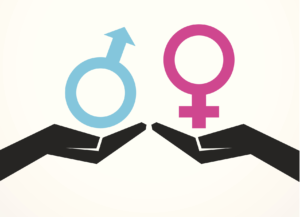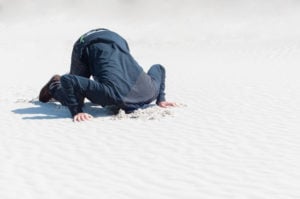Hey y’all, this is another video in a series I’m doing with Everyday Feminism, which is a website dedicated to helping you break down and stand up to everyday oppression.
In this video, I’d like to discuss a widespread problem of racial dis-identification – in other words, the phenomenon of race jumping within white communities.
It’s relatively new, and basically it is the idea that a white person can dissociate themselves from their racial group in favor of another. They might choose to do this for reasons like, they want to appear more “exotic” or “interesting” or they might be trying to dilute or escape their whiteness because its privilege makes them uncomfortable. Either way, it is an exercise in privilege.
We have probably all heard about Rachel Dolezal, who pretended to be black for much of her life, only to be outed by her family.
Broadly speaking, it seems that racial dis-identification can range from those who claim some racial heritage at a safe genealogical distance (as not to warrant involvement in current racialized struggles) to others who base their entire career and public persona on claims of membership in oppressed groups (Rachel Dolezal is an example of the latter, but she is not the only one to do it). There have been many professors and activists who have wrongfully claimed some heritage they have no real claims to.
One common instance of this phenomenon you might have encountered is when white people claim to have Native American blood. This often comes in the form of white people claiming to have descended from a “Cherokee princess.”
To be very clear, deciding who is and is not Native is a complicated issue which should be left to Native people to decide. This video is instead focused on another dynamic: that is, white people trying to distance themselves from racism (and whiteness). This can happen by doing full-on black face like Dolezal, but it also can be in the form of claiming membership to any racial/cultural group that one does not truly belong.
While colonization has made it incredibly dangerous to be identified as a Native person in many areas of the country, white people have always had the privilege of “fiddling” with our identities in ways people of color do not.
So, for Native Americans, identifying as white was sometimes used a means to survive – to obtain employment, housing, to keep their children from being taken from them. This is why some Native people today might not be fully aware of their heritage. And this is not what I’m addressing here. I am not talking about those whose identity is or was a means to survive oppression and colonization.
This is about white people whose identity is not under scrutiny or attack, who choose to claim Native American or black (or any non-white) heritage not because their ancestors could not openly claim it, but simply because it sounds interesting or exotic.
So, really, why do so many people make this claim?
Many philosophers and sociologists that it has to do with discomfort with whiteness. White people who do not want to seem or even truly be white (with all the negatives associated with it) find it easy to claim they are not fully white.
Sociologists call it “ethnic shopping” – where white people shed the identities they were born into and put on alternative identities they find more interesting or comfortable. (Comfortable in that it allows white people to avoid the discomfort of white privilege, white guilt, or just plain boredom with being white.)
Ultimately, this is a blatant act of privilege. It is also oppressive and harmful to efforts of those fighting for rights by minimizing what it means to be part of an oppressed group.
So in the case of claiming Native American blood, it also disregards what it means to be a sovereign nation. The Cherokees have a system of citizenship that must be left entirely up to them. And most importantly, claiming Native American heritage as a white person with little to no grasp on Native issues does nothing to advance the efforts of anti-racist and anti-colonialist movements.
I want to stress that whites should feel okay to explore and investigate their own ethnic heritage, there’s nothing inherently wrong with that, but the claim itself brings with it some moral responsibilities.
Being a person of color is more than the costume Dolezal wears – she can “opt out” of oppression at any time and return to life as a white woman. Oppressed people do not have that choice. And claiming Native American heritage is about much more than checking a box on a census or any romanticized idea of a “Cherokee princess” ancestor.
These claims involve a deep commitment to the group of people you are claiming to be a member of – to understand their struggles and become a part of that struggle. It should be part of a bigger goal to help uplift a community and dismantle the systems of oppression which are hurting them, all of that should come with your claim.
Otherwise you are just maintaining a safe genealogical distance from racialized struggles while refashioning one’s own identity as privilege-free or with less privilege.
And ultimately it’s harmful to claim these identities without first understanding and engaging with the racialized struggles of those people. White people make these claims because it allows them to avoid confronting racism as a white person. But that’s not okay.
We as white people must be more willing to confront our discomfort with our whiteness in a productive way, focusing on dismantling oppressive systems using our privilege as a starting point rather than running away from it in order to avoid responsibility.




















